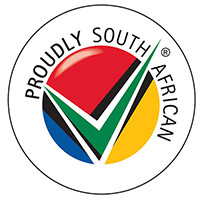JOHANNESBURG - This week we are shining a light on how some of our local business entrepreneurs (as opposed to manufacturing enterprises) trade and transact, with whom and to whose benefit, and conversely to whose detriment, particularly in the public sector.
Because Proudly South African has its own in-house tender monitoring system, sifting through almost 700 government departments, agencies and entities' websites, looking to ensure compliance with local procurement legislation, we see the full range of tenders on offer. At this stage we are not able to track who has pitched, won and fulfilled a contract or to verify whether it was a compliant bid, but we hope to extend our function to include this in future.
But we know, because in some cases it is reported to us, that even where 'local content' is stipulated in a tender, some businesses, whilst they are local by virtue of their location and staff complement, are offering anything but local products and services and are acting merely as a middlemen. They procure whatever is required by the government entity from outside of South Africa and supply it on. That's not local content, guys!
Of course, the country that is more often than not the beneficiary of these tenders is China, where seemingly a lot of things are relatively cheaper than South African equivalents and where some South African companies are happy to create more jobs. Don't make obtaining a quotation from a Chinese company your default response to a tender. South
African products and services are competitive, especially on quality, but are often not even asked to quote.
But price is not always king. Even government's own guidelines (championed by the dti) put the sourcing and supply of locally grown, produced or manufactured goods in some sectors higher than price in evaluating bids. Fronting as a proudly South African SMME and procuring what government wants from China is what gives some companies the reputation and name, and deservedly so, of 'tenderpreneurs'.
And we will name and shame companies that try and cheat their way through the fulfilment of a tender or contract. We have ourselves even had the experience of a conference bag supplied to a 3rd party, which Proudly South African sponsored where the label of the bag was clearly cut out before distribution, to avoid being detected as an imported item, even though we had specified that it must be procured locally. Supplied locally but procured from overseas? Not local content!
Last week we hosted a public-sector procurement forum in Johannesburg, at which our keynote speaker was Finance MEC Barbara Creecy. She is a no nonsense, take no prisoners kind of MEC, who was scathing of local businesses that buy from China, but deliver to government from the townships and pretend that it constitutes local procurement. The Gauteng Provincial government has a mandate to procure 30% of their needs from township businesses and they now have a supplier database comprising 10 300 such kasi enterprises. They are all verified by the SA Supplier Diversity Council, so there are no bogus outfits amongst them. No excuses for departments to say they couldn't find a bona fide local business when they're on the CSD, but the next stage for MEC Creecy is to find a way to flag those businesses that manufacture their products here in SA and differentiate them from the 'tenderpreneurs'.
Only by leveraging genuine local procurement will we change the structure of our economy to create jobs here and not overseas.
Local businesses must obey the Golden Rule or the Law of Reciprocity, which is the principle of treating others as one would wish to be treated. That is, if you want to be supported by your own, support your own down the supply chain. And we appeal not only to tenderpreneurs, but to all private sector companies to join the buy local movement.
Where does your stationery come from? Your office furniture? Cleaning materials etc? Make your suppliers and service providers local ones and leverage your status as a buy local champion. Include statements such as 'We support Made in South Africa!' 'We buy local to create jobs!' 'We are local and we are creating jobs!' in your vision and mission statements, and in your marketing collateral and see how you can reap what you sow.
Eustace Mashimbye is the chief executive of Proudly South African.
The views expressed here are not necessarily those of Independent Media.


